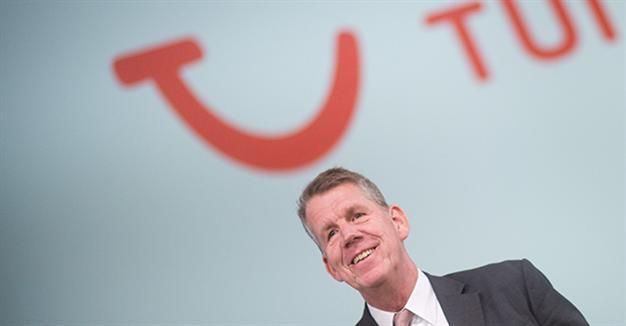TUI says profits set to rise as holidaymakers head west instead of Turkey, North Africa
BERLIN - Reuters

AFP photo
TUI Group, Europe’s largest tour operator, said it was on track to meet its profit target this year as more European holidaymakers head further west and Britons remain eager to go abroad despite the fall in sterling following the Brexit vote.TUI’s outlook contrasted with smaller rival Thomas Cook, which has more exposure to troubled destinations in the eastern Mediterranean such as Turkey and last month lowered its full-year profit forecast as it worked to move more of its package holidays to the western Mediterranean.
TUI confirmed on Aug. 11 that it would deliver underlying profit growth of at least 10 percent at constant currency rates in the 12 months ended Sept. 30, despite lowering its sales forecast after security concerns in Turkey and elsewhere deterred holidaymakers.
Many more northern Europeans were opting to holiday in Spain, where TUI is traditionally strong, and flying on lucrative long-haul packages across the Atlantic, instead of holidaying in Turkey and North Africa, TUI said.
The demand for holidays in Spain means fewer last-minute bookings, pushing up average room rates this summer and helping it to retain its profit forecast even though it trimmed its sales growth forecast to 2 to 3 percent from at least 5 percent.
TUI also said demand from British holidaymakers had not been hit by the decision to leave the European Union.
Since the vote in June the pound has weakened against the dollar and the euro by around 10 percent, making it more expensive for Britons to go abroad.
“Despite the weaker pound, the desire of Brits to go on holiday has not been affected,” Chief Executive Fritz Joussen told reporters. “There’s been a very strong performance from the UK, bookings have risen very strongly.”
The company said third-quarter sales dropped 5.7 percent, partly due to attacks causing travelers to hesitate on their holiday decisions, but underlying core earnings (EBITA) held up, rising 1 percent to 180 million euros (155 million pounds) due to strong demand for Spanish holidays.
“Spanish destinations are becoming more lucrative because capacity is very tight, and the prices there are rising,” Joussen said.
Adjusted for the timing of Easter and currency effects, profit would have been up 14 percent in the third quarter, TUI said.
















